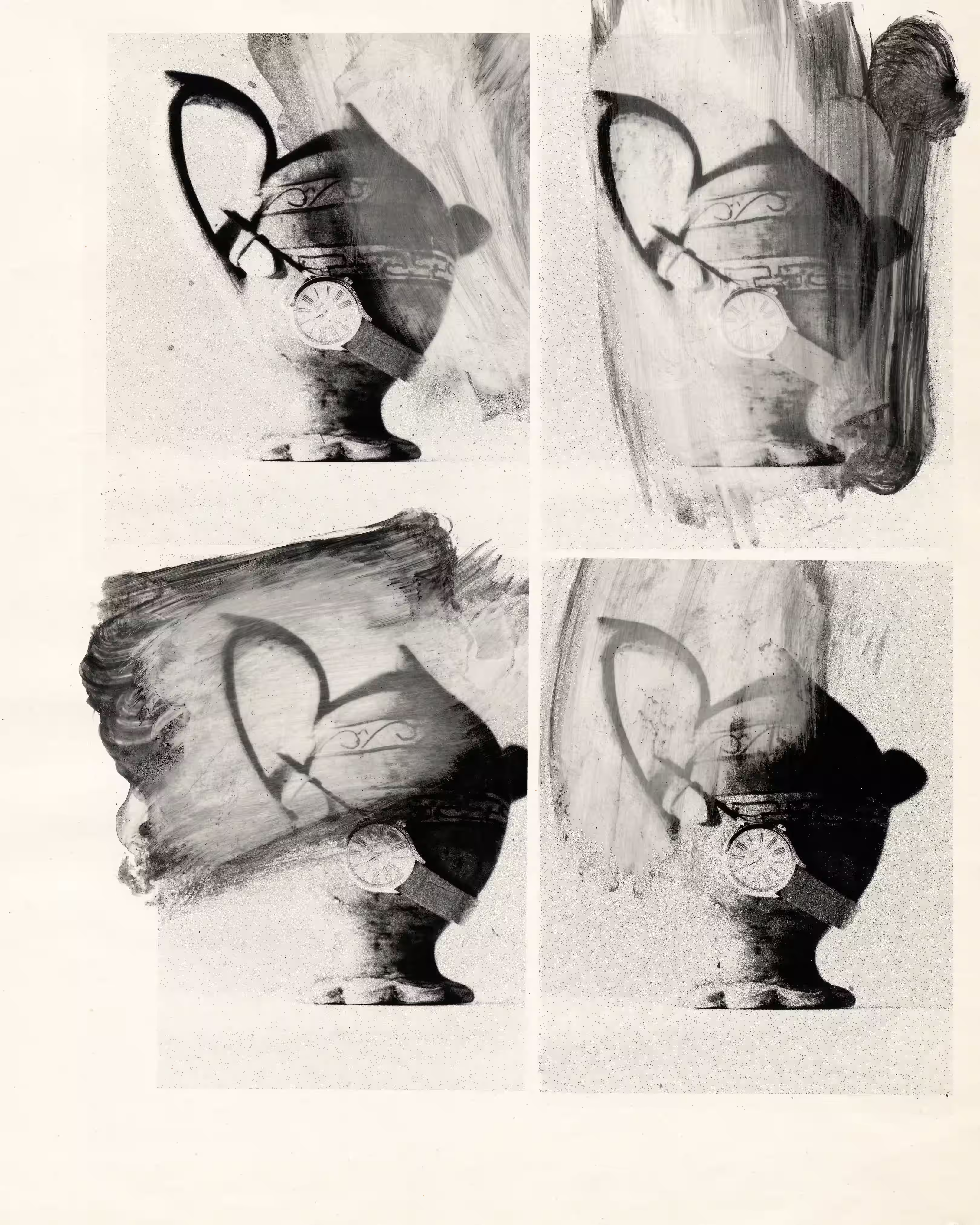
I’ve loved shrimp since I was a kid, after my first plate of scampi at our local Italian restaurant, Borgo Antico on 13th between 5th Avenue and University Place. Their ability to absorb salt and olive oil, both of which enthralled me, was a delight. Richer than Häagen-Dazs. Less gristly than steak. And no blood! All I did was beg for shrimp. I had tried prawns before, shrimp’s (typically) bigger sibling, surely. But never in a way that marked me. Until this summer.
There is a British seaside town called Hastings. Less fashionable than the now long hipster-fied Brighton or the buzzy Margate. Hastings is a true bug in amber—a sepia-toned snapshot of coastal life in Victorian England. These towns, grand getaways for Brits once looking to escape the industrializing sooty cities, now carry the spirit of ghost ships. The empire’s coast grew forgotten when flights became more available to the exotic beaches of Spain, Italy, and Greece. The food there was better, the water less murky, and its locals were tanned and very sexy. Their faded glory is no more visible than on the facades of Hasting’s old hotels—columned and stately, fluttering with striped awnings—now rusted and worn.
I stepped off the train from London to the wail of seagulls. Hastings’ blustery, briny air has a gatorade effect: electrolytes plumping the skin, the lungs, the eyeballs through osmosis. Lined with slanting pubs, as if tired and drunk themselves, old fishing boats, fragrant fish and chip shops, and rickety antique stores topped with hand painted signage—the town epitomizes the meaning of charm: “To affect by or as if by magic,” writes Merriam-Webster. In a word, spellbound. The place had me spellbound.
I met friends near the shore, whose waters in bright sunlight go from murky gray to milky aquamarine, a color not at all unpleasant. Pretty and soothing rather, like the pastels of a nursery. Someone opened a thin plastic bag weighed down by a pile of—breathless pause—prawns. They looked like so many little gems in there! Exoskeletons of blush pink and coral, black pearls for eyeballs. Ice clung to their shells, like the thin, glassy shards floating atop a fine martini. And the flesh within? Sweet, far sweeter than a shrimp, whose name conjures little tenderness at all for me now. The sweetness of these prawns evoked the flavor of malt, whose addition to something like soft serve can bring a savory, almost caramel depth. Creamy even, dairy conflating like the malolactic fermentation of white burgundy or chardonnay. The snap in bite was finer, juicier. Think slicing open a thin-skinned grape. We sucked the heads for last drops, mineral rich as dashi.
Could a delicacy be something like a platonic ideal? Elevating a category you thought you knew? Obsession taken to the next level? I’ll find my way back to shrimp. But it’s hard now knowing the taste of prawn. Maybe there’s something here to the idea of choice: a delicacy is the undeniable pick. It’s incomparable. Here’s what 10 others think.

Devin B. Johnson
“I think of fine treats and exquisite finds. Something like Italy’s pasta, Senegal's Cheb ou Jen or even Morocco’s tagine dishes. Food brings people together from all over the world. Perhaps it’s the first entry point to connecting with various cultures.”
Priya Ahluwalia
“It’s about the traditional foods my Nani makes from Punjab, and the delicious dishes we enjoy together. I remember the warmth of parathas, the sizzle of tandoori chicken, and the vibrant flavors of chaats. To me, a delicacy is more than just exceptional food; it’s a taste that evokes special memories.”
Jordan Kahn
"Raw materials from nature represent the most profound delicacy of our modern time. Of the many ancient trees incorporated in our cooking, the California Redwood (Sequoia sempervirens) is amongst our most esteemed. We harvest the young sapling tips in the spring and summer which are tender enough to consume raw. Their fragrant, resinous, and yuzu-like quality represents the flavor of our region, creating a singular flavor memory that only exists here in California."
Suzie Kondi
“My mother’s Tiropita, Greek phyllo pastry filled with oozy creamy delicious feta. Mixing that very first handful of flour with warm water, delicate kneading forms the dough. I’d watch my mother carefully cut the dough into thirds, then place each in its own cloth-covered bowl. The dough would rise along with our anticipation and appetites. Taking a skinny wooden dowel, she’d prepare to work its magic. With strong, beautiful hands scented with oregano, lemon, and olive oil, she’d roll the dough into a huge, paper-thin circle, carefully mending any holes, then drizzle melted butter and crumbling feta over the whole. The final magic were the coils she’d twist, snaking the most beautiful pattern around the flat stainless pie dish. Into the oven it would go, emerging, 20 minutes later, as the definition of the word.”
.avif)
Francisco Costa
“Kaia is a delicacy. It’s food for your skin! It’s a product of the Sapucaia tree. Packed with proteins and amino acids, it’s known as the fruit that makes your eyes light up.”
Simon Kim
“I think of specialty Chinese ingredients like a bird's nest or dried sea cucumber. A delicacy is not something you use or eat every day. It stands out and brings a certain delightfulness and joy to any experience.”
.avif)
Anna Polonsky
“I like to think that a delicacy’s etymology combines both ‘delicate’ and ‘advocacy’—advocating for delicateness, working hard to preserve beauty, taste, and traditions. A delicacy is the almond-orange blossom amygdalota cookies at the port in Spetses, Greece. It’s the fine veal pastrami at Maison David's butcher shop in Le Marais, Paris. It’s the fresh hot churros made à la minute and served with a very tall hot chocolate at the Andean market in San Juan, Argentina. It’s the salty, briny mullet roe bottarga Tunisians cut into thin slices for apero. It’s the Gewurztraminer-infused Munster cream that a particular vendor sells exclusively at the market in Epinal, near Alsace. It’s all the products made by The Deligram in New York City. These little luxuries, passed down from generation to generation, are unassuming yet unforgettable. They are not made for Instagram but for the moment itself. Delicacies are an act of love that connect us to the past and present.”
Gero Fasano
“A delicacy is education, culture, sweetness, cool, and elegance. As David Byrne says in 'Psycho Killer': ‘I hate people when they are not polite.’”

Mary Attea
“No ingredient matches the singular essence of sea urchin. And while there are many varieties, Hokkaido uni reigns supreme. Imagine the perfect bite: warm sushi rice, perfumed with a dash of rice wine vinegar. Sweet, creamy lobes of roe, a delicate indulgence. Crisp sheets of toasted nori. Nothing compares. I once stood in awe while visiting the Nijo Fish Market in Sapporo, stalls brimming with this oceanic delicacy. Abundant, but still singular.”
David Prior
“My definition of a delicacy is never one of those status symbol products flown around the world, slapped with an absurd price tag, and greedily coveted. Instead, a true delicacy is about the opportunity to taste something in the place of its origin and amidst the culture that celebrates it. They can be fleeting, even fragile, or everyday and ubiquitous. With an openness to the unfamiliar, we not only expand our palettes but also our minds and in so, protect a delicious kind of diversity.”











.avif)








.avif)


_result_result.avif)



.avif)

_result_result.avif)

_result_result.avif)
.avif)

_result_result.avif)


_result_result.avif)


.avif)




.webp)

.avif)



















%20(1).avif)
.avif)




.avif)
















.avif)


.avif)





















.jpeg)

.avif)

_11%20x%2014%20inches%20(2).jpg)







.avif)

.jpg)

%20(1).jpg)
.avif)
.jpg)

.jpg)
.webp)


.webp)



.webp)


.webp)


.avif)









.avif)
.avif)

















.avif)









.avif)



.avif)




















-min_result.avif)









.avif)







3_result.avif)
_result.avif)






_result.avif)




.avif)




.avif)













.avif)

.avif)











.avif)

.avif)










.avif)



.avif)


_result_result.avif)
















-min_result.avif)






.avif)
.jpg)
















_result.avif)

.avif)


.avif)







.avif)





.avif)

_result.avif)



.avif)















.avif)









.avif)


.avif)














.avif)




.avif)








.avif)

.avif)

.avif)



.avif)


.avif)




.avif)

.avif)

.avif)
.avif)
%20(1).avif)
.jpg)

%20(1).avif)








.avif)
.avif)

.avif)






.avif)



















.avif)
.avif)
